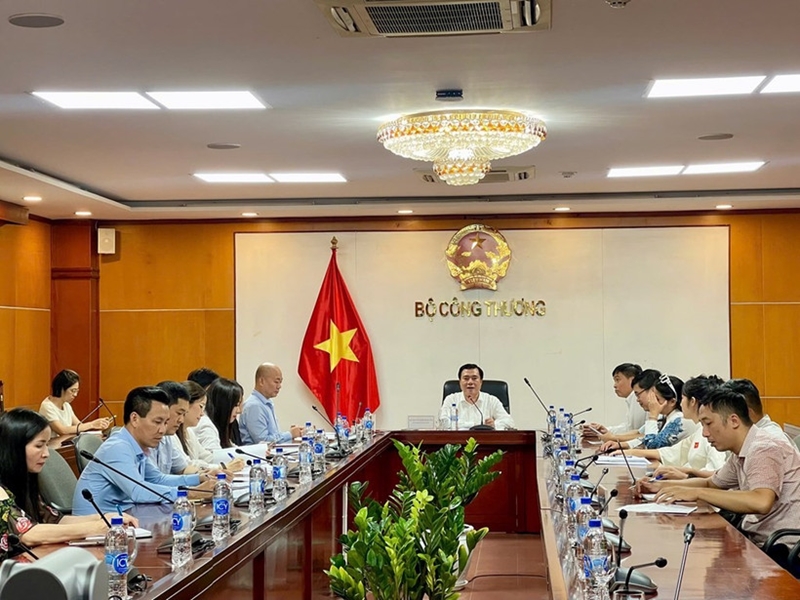Tan noted that while Vietnam has adopted multiple strategies and policies for digital transformation and e-commerce development, many businesses still face limitations in digital capability, funding, human resources, data infrastructure, and market information.
    |
 |
|
An overview of the conference |
He stressed that close coordination among the Ministry of Industry and Trade (MoIT), its Trade Promotion Agency, overseas trade offices, and the business community will help Vietnamese products gain a foothold in the global market and meet the growth targets of over 8% for 2025 and double-digit growth beyond.
Lai Viet Anh, Deputy Director of the MoIT’s Vietnam E-Commerce and Digital Economy Agency, underscored e-commerce as a pillar of digital transformation which has a key role to play in improving competitiveness and expanding international markets for Vietnamese firms.
Anh noted that e-commerce has evolved beyond a domain for large corporations to become an accessible platform for SMEs, opening up opportunities for Vietnamese products to further reach global markets. Since 2005, Vietnam has implemented five-year e-commerce development plans, maintaining an average growth rate of 20% per year. By 2025, the e-commerce market is expected to hit 25 billion USD, accounting for 10% of total national retail and consumer service revenues.
Recent legal frameworks, including the Electronic Transactions Law (2023), the Law on Digital Technology Development (2025), and the upcoming E-Commerce Law, are expected to create a comprehensive legal corridor to support this growth, she noted.
The ministry has launched practical tools, including the Vietnam Export Portal, a platform supporting digital export, and the Go Export program, to assist exporters to build brands, access global e-marketplaces, and adopt digital skills like livestream selling and AI-driven marketing.
Vietnamese trade offices abroad are also rolling out various measures. Trade Counsellor in Singapore Cao Xuan Thang shared that the Vietnam Trade Office there has developed a concentrated data system covering corporate profiles, business activities and event calendars, creating a 360-degree view to support trade promotion. It also leverages integrated e-marketing tools to engage businesses and encourage their participation in events more efficiently.
Singapore’s Trade Office has carried out several digital initiatives, including blockchain-based traceability for Vietnamese agricultural exports, a “health map” for key agri-products, and an online training platform for SMEs and cooperatives, demonstrating the determination to digitizing every stage of trade promotion.
Nguyen Thanh Duong from the Trade Promotion Agency noted partnerships with major platforms like Alibaba, Amazon, and TikTok to establish National Pavilions, which have already attracted export orders for over half of participating businesses. However, he acknowledged that many SMEs still struggle with managing cross-border logistics and complying with stricter origin traceability, environmental and labor standards.
To address this, he added, the agency is rolling out a digital readiness index for trade promotion stakeholders and tailoring training programs to specific needs. Each year, thousands of SMEs and cooperatives are already benefitting from these support schemes.
Source: VNA